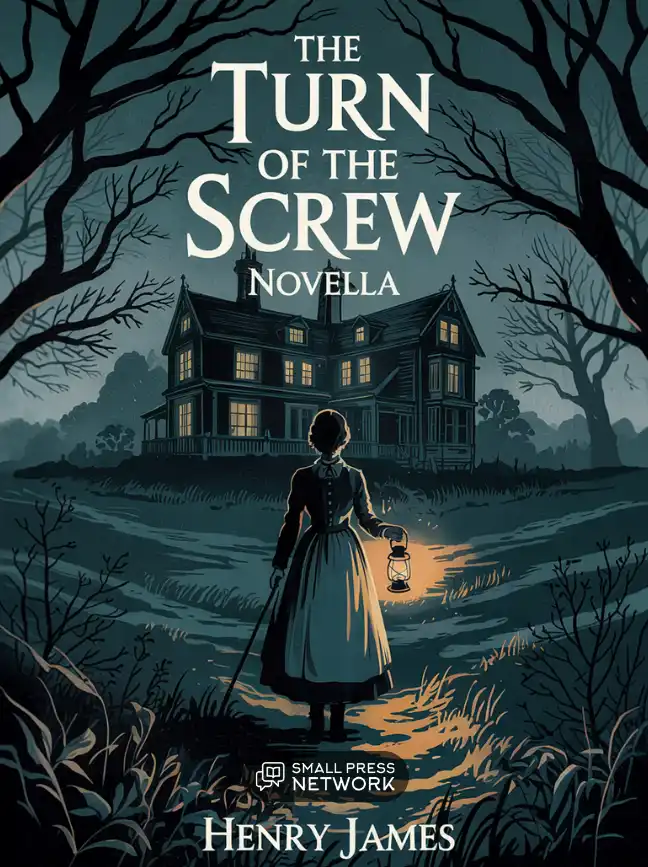A cemetery.
TWO PEASANTS enter with their spades, etc.
FIRST PEASANT.—Should she be buried in Christian ground, she who voluntarily went to seek her salvation?
SECOND PEASANT.—I tell you yes; dig her grave at once. The coroner has held a hearing on her and has concluded that she is a Christian burial.
FIRST PEASANT.—How can that be, unless she drowned herself in self-defense?
SECOND PEASANT.—Well! that’s what we recognized.
FIRST PEASANT.—No, it must be a case of personal offense; it cannot be otherwise. For here lies the question: if I drown myself voluntarily, that constitutes an act; and an act is divided into three branches, which are: to act, to do, and to perform. Ergo , she drowned herself voluntarily.
SECOND PEASANT.—Good! But listen to me, you good gravedigger.
FIRST PEASANT.—Permit me. Here the water passes; good. There the man stands; good. If the man goes to the water and drowns,—whether he wills it or not,—it is because he goes there that he drowns; mark this well. But if the water comes to him and drowns him, he does not drown himself: ergo , he who is not guilty of his own death has not shortened his own life.46
Note 46: (back) Shakespeare here ridicules the subtleties of the judicial logic of his time. In Plowden’s Commentaries we find a lawsuit which seems to have served as his theme. Sir James Haie having committed suicide by drowning himself in a river, the question was whether a lease he was enjoying should continue to run in favor of his widow, or, on account of the suicide, pass to the Crown; and Sergeant Walsh reasoned thus—”The action consists of three parts: the first part is the conception, which is the act of the mind withdrawing and meditating whether it is proper or not to drown itself and what are the ways of doing it; the second part is the resolution, which is the act of the mind determining to destroy itself and to do it, especially in this or that way; the third part is the accomplishment, which is the execution of what the mind has determined to do. And this accomplishment consists, again, of two parts, which are the beginning and the end: the beginning is the perpetration of the act which causes death, and the end is death, which is only a consequence of the act, etc., etc. See again if Justices Weston, Anthony Brown, and Lord Dyer did not show themselves, in their considerations, as childishly punctilious as Sergeant Walsh or the peasant in Shakespeare: “Sir James Haie is dead,” they said, “and how did he come to die? By drowning, one may answer. And who drowned him? Sir James Haie. And when did he drown him? While he was still alive. So that Sir James Haie, being alive, caused the death of Sir James Haie, and the act of the living was the death of the deceased. Reason therefore dictates that the living person who committed it should be punished for this offense, and not the dead person, etc., etc. In truth, Shakespeare did not exaggerate.
SECOND PEASANT.—But is it the law?
FIRST PEASANT.—Yes, by Jove! It’s the law, the law concerning the coroner’s inquest.
SECOND PEASANT.—Do you want to know the truth about that? If she had not been a noble maiden, she would have been buried outside the holy ground.
FIRST PEASANT.—That’s well said; and what’s more, it’s a pity that the great men in this world are more likely to drown and hang themselves than their brothers in Christ. Come, my spade; there are no more ancient gentlemen than gardeners, earthmovers, and gravediggers: they continue the profession of Adam.
SECOND PEASANT.—Was he a gentleman?
FIRST PEASANT.—He is the first who ever wore sable and vair.
SECOND PEASANT.—Bah! he had no coat of arms.
FIRST PEASANT.—What? are you a pagan then? How do you understand the Scripture? The Scripture says, “Adam cultivated;” and how could he have cultivated without carrying sand and green47 ? But I will ask you another question; if you do not answer me correctly, confess…
Note 47: (return)In the text, the pun turns on the double meaning of arms , which sometimes means arm , sometimes weapons or coat of arms . “Adam had a coat of arms, for he could not have cultivated without arms;” such is, literally, the facetious sophism of the gravedigger. We have sought an equivalent which also relates to the coat of arms. Vair , in heraldic language, is the name for furs, as sable is synonymous with black . In the same language, to wear a color means: to have arms of the color indicated. The pun admitted in the translation is worthless: but we do not even ask that we be forgiven for its poverty; without finesse and without spelling, it only suits the character better and the sinister effect of all this vulgar gaiety which Shakespeare has staged in such a solemn place. All the details of this dialogue are, moreover, as many satirical traits that Shakespeare launches against the ridiculousness of his time, against those of heraldic science after those of judicial logic. Despite the very ancient popular couplet which had said:
Adam pushed his spade, Eve spun her thread,
The gentleman, then, where was he?
The archaeologists of the English nobility professed, in the 16th century, in all their treatises on coats of arms, sometimes that Abel had been the first gentleman, sometimes that Cain had become a villein under the influence of divine anger and Seth a gentleman by the blessing of his parents. The most moderate traced the origin of the aristocracy back only to Jesus Christ and gave as coats of arms to Our Lord the instruments of his Passion, as evidenced by the figures and mottoes printed on some old bindings of pious books. Still others taught that the very iron of Adam’s spade was the type of triangular escutcheons and that the diamond-shaped escutcheon, usually devoted to female coats of arms, imitated Eve’s spindle.
SECOND PEASANT.—Go!
FIRST PEASANT.—Who builds more solidly than the mason, the carpenter, and the shipwright?
SECOND PEASANT.—The gallows maker; for his building outlives a thousand of those who come to lodge there.
FIRST PEASANT.—By my faith, I like your repartee: the gallows do well there. But how does it do well? It does well for those who do harm. And you, you do wrong to say that a gallows is built more solidly than a church. Ergo , the gallows would do well for you. Start again, come on.
SECOND PEASANT.—Who builds more solidly than the mason, and the shipwright, and the carpenter?
FIRST PEASANT.—Yes, tell me that and then unharness.
SECOND PEASANT.—By Jove, yes, now I can say it.
FIRST PEASANT.—Come on!
SECOND PEASANT.—By the holy mass! I cannot say it.
(Hamlet and Horatio enter and stand some distance away.)
FIRST PEASANT.—Don’t rack your brains any further about this, for your lazy donkey won’t correct his pace for being beaten; and when they ask you this question again, answer: the gravedigger. The houses he makes last until the last judgment. Come, go to Vaughan’s, and bring me a jug of liquor.
(The second peasant leaves. The first peasant begins to dig while singing.)
In my youth, when I loved, when I loved,
it seemed to me that it was very sweet, to shorten…
hop!… time. As for… hola!… my conveniences…
hop!… it seemed to me that nothing suited me anymore48 .
Note 48: (return)The three stanzas that the gravedigger sings, interrupting them with an exclamation at each effort he makes to dig, are fragments of a romance written by Lord Vaux. The first stanza is, in Shakespeare’s text, absolutely formless and disjointed. Anyone who has heard a peasant sing a city song knows well how, in passing from mouth to mouth, the words become confused and the meaning lost. Here is the complete translation of Lord Vaux’s own romance:
The aged Lover renounces love.
“I break with what I loved, with what seemed sweet to me in my youthful days; time calls me back to other proprieties; these things, I see, no longer suit me. My suppleness abandons me, my fancies have all flown away, and under the traces of time my head begins to be tangled with gray hair. Age with furtive steps has come to tear me with its claw, and supple life slips away in the distance, as if it had never been. My muse no longer delights me as before; my hand and my pen are no longer in agreement as they once were. Reason refuses me all carefree and light songs, and day after day it cries to me: “Leave these rattles here before it is too late!” The wrinkles on my forehead, the furrows on my face say: “Lame old age wants to live here, youth must make room for it.” I see the harbinger of death galloping toward me; the cough, the cold, the heavy breath urge me to have a pickaxe and a spade prepared, and a sheet to cover myself, a house of clay that is well made for a guest such as myself. It seems to me that I hear the verger tolling the funeral knell; he invites me to leave my deplorable works there before Nature compels me. O my servants! Weave for me this fabric at which youth laughs and sneers, the shroud for me that will be as soon forgotten as if I had never been born! I must therefore renounce the youth whose colors I have so long displayed! I pass the joyous cup to those who can wear it better. Look: see this bald head, whose nudity teaches me that age, always bent, will tear from me what youth sowed. It is Beauty, with all her troop, who has forged my acute worries and who already makes me fail in this earth from which I was taken on the first day. O you who remain on this side! Do not entertain another belief: you are, by birth, kneaded of clay, and you will vanish into dust too.
HAMLET.—Has this fellow no sense of his trade? He sings while he digs a grave!
HORATIO.—Habit hath bred in him a faculty of carelessness.
HAMLET.—That is it; the hand that does little service has the most delicate touch.
FIRST PEASANT.—But age, with stealthy steps, came to tear me with its claw and made me fail on the earth as if I had never been.
(He picks up a skull and throws it.)
HAMLET.—This skull had a tongue once, and could sing. How this rascal rolls it on the ground! Would it do otherwise if it were the jawbone of Cain, who first murdered?… Perhaps it is a politician’s noggin that this ass now scorns… one that had circumvented God himself….. is it not possible?
HORATIO.—It may be, my lord.
HAMLET.—Or of a courtier, who knew how to say, “Good day, my gracious lord; how do you fare, my excellent lord?” Perhaps it was my lord so-and-so, who praised my lord so-and-so’s horse, when he meant to ask him for it49. Isn’t that quite possible?
Note 49: (back) Shakespeare staged this in Timon of Athens , Act I, Scene II. Timon, who is not yet a misanthrope, not having yet experienced the ingratitude of his friends, gives them a sumptuous banquet and gives them all presents; one of them complains about his generosity, so Timon says to him: “I remember now, my dear lord, that the other day you spoke kindly of a bay horse I was riding. He is yours since you liked him.”
HORATIO.—Yes, my lord.
HAMLET.—Isn’t it? That’s it. And now he’s married to Lady Vermin, gaunt, and well struck in the jaw with a sexton’s spade. There’s a fine revolution in that, if we had the wits to look at it! Did these bones cost so little to make that they must be used for playing at skittles? Mine ache when I think of it.
FIRST PEASANT.—A mattock and a spade, and a spade, and a sheet to cover himself with—hola!—and a clay hole to dig—that suits such a guest.
(He throws another skull.)
HAMLET. Here’s another; why should it not be a lawyer’s skull? Where are his equivocations now, his distinguo , his points of fact, his points of law, and all his tricks? Why does he suffer this brutal scoundrel to beat his head now with a muddy shovel? And why does he not bring his action against him for blows, injuries, and grievous injuries? Hmm! Perhaps this gentleman was in his time a great buyer of lands, with his mortgages, his acknowledgments, his rents, his double guarantees, his recoveries! Is this the final rent of all his fine rents, and the recovery of all his recoveries, to have his fine head full of fine mud? Will his guarantees, both double and single, not secure him of all his purchases no more than a space long and wide as two writing rolls? The titles of transfer of his properties alone would hardly fit in this box; and must the owner himself not have more? Eh?
HORATIO.—Not an inch more.
HAMLET.—Is not parchment made of sheepskin?
HORATIO,—Yes, my lord; and calfskin too.
HAMLET.—These are calves and sheep that seek their confidence there. I will speak to this fellow. Tell me, man! whose pit is this?
FIRST PEASANT.—It’s mine, sir.
Hello!… And a clay hole to dig… that suits
such a guest.
HAMLET.—Verily, ay, I think it is thine, for thou art making thy own in it, in putting me into it.
FIRST PEASANT.—On that, sir, it is rather you who want to put me in it; but you are not there, and that proves that it is not yours. As for putting you in it, for my part, I do not work there. And yet, it is my pit.
HAMLET.—Yes, you work to put me in, since you work at this pit, and since you say it’s yours; you know it’s made to hold the dead, and not to seize the quick. That’s how you’d put me in.
FIRST PEASANT.—What is lively, sir, is wanting to put me in it. But these liveliness may well turn back from you to me.50 .
Note 50: (back) There is in this passage a joust of voluntary misunderstandings whose translation cannot be as brief as the text. In the text they turn on the absolute resemblance of the verb to lie , to lie , and the other verb to lie , to be lying , buried , situated , etc. They also turn on the double meaning of quick , which, in everyday language, means lively , prompt , impetuous , and in a special sense living , when we say the quick , as opposed to the dead , as in French le vif , in some terms of legal language. But such is the imbroglio of these subtleties that one would run a great risk, in commenting on them, of tangling them instead of untying them; The translation equivalents will suffice in themselves if the reader, in his mind, sees the scene well, if he sees the gravedigger in his grave, the mocking and slow peasant who chatters between two blows of the pickaxe, stands up to the gentleman and wants to have the last one.
HAMLET.—For what man dost thou dig it?
FIRST PEASANT.—It is not for a man, sir.
HAMLET.—For what woman then?
FIRST PEASANT.—Nor for a woman either.
HAMLET.—Who is to be buried there?
FIRST PEASANT.—Someone who was a woman, sir; but peace be to her soul! she is dead.
HAMLET.—How strict is that fellow! We must speak to him by the rules, or equivocations will be in our way. By God, Horatio, for three years I have observed this: our age is become so fastidious, That the peasant with the tip of his foot presses close enough against the courtier’s heels to scratch his chilblains…. How long have you been a gravedigger?
FIRST PEASANT.—Of all the days in the year I took, to begin the trade, that on which our late King Hamlet defeated Fortinbras.
HAMLET.—How many of these are there?
FIRST PEASANT.—Can’t you tell? There’s no fool who doesn’t know. It was on the very day that young Hamlet was born, the mad one, who’s been sent to England.
HAMLET.—Ah! indeed? and why was he sent to England?
FIRST PEASANT.—Why, because he was mad. He will find his mind again there. Or, if he does not find it there, it will be but a small loss in that country.
HAMLET.—Why?
FIRST PEASANT.—It will not be seen in him at all: the men there are all as mad as he is.
HAMLET.—How is he gone mad?
FIRST PEASANT.—Very strangely, they say.
HAMLET.—Strangely? and how?
FIRST, PEASANT—It is, by my faith, by losing one’s mind.
HAMLET.—And on what point?
FIRST PEASANT.—At a point in this territory, in Denmark. I have been a sexton there for thirty years, both young and old.
HAMLET.—How long does a man lie in the ground before he rots?
FIRST PEASANT.—My goodness! if it is not rotten before it dies (as we see these days, and many of those pox-ridden corpses that can hardly bear burial), it will last you some eight years… or nine years…; a tanner will last you nine years.
HAMLET.—Why him more than another?
FIRST PEASANT.—Ah! there, sir! His leather is so well tanned by his trade that it can withstand water for a long time; and it is water that is a harsh demolition of all your dead bodies, sons of whores!—Look, here is a skull that has already remained in the ground for twenty-three years.
HAMLET.—Whose skull was that?
FIRST PEASANT.—Ah! the son of a whore, what a triple fool he was! Who do you think he was?
HAMLET.—Indeed, I know not!
FIRST PEASANT.—Plague him, that mad rascal! He once poured a flagon of Rhine wine over my head. That same skull, sir! That same skull, sir, was the skull of Yorick, the king’s jester.
HAMLET.—That one?
FIRST PEASANT.—Yes, that thing.
HAMLET.—Let me see. ( He takes the skull . ) Alas! poor Yorick…. I knew him, Horatio, he was a fellow of infinite wit, of very rare fancy. He bore me on his back a thousand times; and now, how repugnant my fancy is! It makes me sick. There were those lips attached, which I kissed I know not how often! Where are your mockeries now? your frolics? your songs? your bursts of mirth that used to make the whole table laugh? And nothing of this now, nothing to mock at your own grimace? What! gaping mouth, indeed? Go now to my lady’s chamber, and tell her lordship, though she paint herself an inch thick, that is the face she must come to! Make her laugh at it.51 —I pray you, Horatio, tell me one thing.
Note 51: (return)Shakespeare, in putting these last words into Hamlet’s mouth, was probably thinking of some engraving, some painting that had struck him. Christian art has long delighted in depicting in a thousand forms, with a harsh and religious irony, this same spectacle of Death coming to warn the living in the midst of their pleasures, from which pagan art drew, with such graceful and gentle sadness, an invitation to quickly enjoy the world and its goods. Vive nemor lethi , says Voluptuousness, in Perse; and in this little masterpiece attributed to Virgil and worthy of him, in the last lines of the Syrian Hostess :
Pone merum et talos; pereant who crastina curant!
Mors vellens aurem: vivite, ai, venio.
Between these images of ancient poetry and those of Shakespearean poetry, we feel that the entire Danse Macabre has passed. Is not the scene described by Hamlet that engraving by Goltzius, where Vanity is represented by a lady, seated at her toilet and surrounded by her jewels, surprised by the apparition of Death, or that painting mentioned in the inventory of Henry VIII’s furniture at Westminster, which represented a woman playing the lute, while an old man holds out a mirror to her in one hand and a skull in the other?
HORATIO.—What is it, my lord?
HAMLET.—Thinkest thou that Alexander made that figure underground?
HORATIO.—Yes, indeed.
HAMLET.—And that it should smell like that? ugh!
(He throws the skull.)
HORATIO.—Yes, indeed, my lord.
HAMLET.—To what mean employments we may return, Horatio! Why should not imagination trace Alexander’s noble dust, till it finds it stopping a barrel’s bung?
HORATIO.—It would be too much to consider matters so.
HAMLET.—Nay, I do not diminish one jot of it ; it may be followed thus far plainly enough, and there is a probability in the argument thus: Alexander died, Alexander was buried, Alexander returned to dust; dust is earth; out of earth we make cement; and why, then, with that cement into which he was converted, could not a barrel of beer be stopped? August Caesar, dead and changed into clay, could stop a hole and stop the wind. O! to think that dust that held the world in check was meant to patch a wall and repel the winter’s breath! But softly, softly! let us withdraw: here comes the king.
(The priests enter in procession. Then come the body of Ophelia, Laertes and the mourners; then the king, the queen and their retinue.)
The queen, the courtiers! Who are they following? And how mutilated these rites are! This indicates that the corpse they are following has, with a desperate hand, attempted its own life. It was a person of some note. Let us hide for a moment and observe.
(He withdraws with Horatio.)
LAERTES.—What other ceremony?…
HAMLET.—It is Laertes, a very noble youth: let us hear.
LAERTES.—What other ceremony?…
FIRST PRIEST.—Her funeral has been carried as far as we have been commanded. Her death was open to doubt, and without that high will which prevails over established order, she would have been lodged in unblessed ground until the trumpet of the last judgment. Instead of charitable prayers, potsherds, stones, and pebbles would have been thrown upon her; but she has been granted her maiden crowns, her strewn with virginal flowers, and the accompaniment of bells and funerals.
LAERTES.—Is nothing more to be done?
FIRST PRIEST.—No, nothing more; it would be a profanation of the office of the dead to sing for her the Requiem and that repose reserved for souls who depart in peace.
LAERTES.—Place her in the earth, and from her fair and spotless flesh may a thousand violets spring up there!52 I tell you this, you brutal priest: my sister will be a guardian angel, when you, you, fall down there screaming!
Note 52: (return) Likewise Perse, Sat. 1, v. 39:
Nunc non e tumulo fortunataqne faville
Nascentur victae?
HAMLET.—What? fair Ophelia!
THE QUEEN, scattering flowers. —The sweetest to the sweetest! Farewell! I had hoped you would be my Hamlet’s wife; I thought, sweet girl, to adorn your bridal bed with these flowers, and not to strew them over your tomb.
LAERTES.—Oh! let a triple punishment fall thrice ten times upon this cursed head, whose wicked deed hath deprived thee of thy most delicate reason! Hold this earth still apart for a while, till I have seized it once more in my arms. ( He springs into the pit .) And now heap your dust upon the living and the dead, till you have made this plain a mountain that rises above old Pelion or the celestial brow of blue Olympus!
HAMLET, advancing. —Who is the man whose grief has such a pitch of accent, and whose lamentations, like a magic conjuration, reach the wandering stars and stop them, like listeners struck with mortal surprise? I am that man, I, Hamlet the Dane!
(He jumps into the pit.)
LAERTES, seizing him. —May the demon take your soul!
HAMLET.—You pray not well. Come, take your fingers from my throat; for though I be not bilious or brusque, yet I have something dangerous in me, which your prudence must dread. Put away your hand.
THE KING.—Separate them.
THE QUEEN.—Hamlet! Hamlet!
ALL.—Gentlemen!
HORATIO.—My good lord, be calm.
(They are separated and come out of the pit.)
HAMLET.—Now, I will fight with him in this cause, till my eyelids refuse to move.
THE QUEEN.—O my son, for what cause?
HAMLET.—I loved Ophelia. Forty thousand brothers could not, with all their love, amount to the same sum as me… What will you do for her?
THE KING.—O Laertes, he is mad.
THE QUEEN.—For God’s sake, let him be!
HAMLET.—Good heavens! show me what you mean. Will you weep? Will you fight? Will you starve yourself? Will you tear yourself to pieces? Will you drink vinegar?53 Do you want to eat a crocodile?… I will do all that… Do you only come here to moan? To defy me by throwing yourself into her tomb? Get yourself buried alive with her; I will do the same. And since you babble about mountains, let millions of acres of earth be thrown upon us, until our soil goes to the burning spheres to strike and scorch her head and make Mount Ossa look like a wart!… On my honor! If you declaim, I will shout as well as you.
Note 53: (return)In Shakespeare’s time, gallants had the fashion of proving their passion to their mistresses by the most extravagant tests; one of the least foolish, but not the least silly, consisted of swallowing some unpleasant beverage. It is therefore useless to suppose, as some commentators do, that Hamlet proposes to Laertes that he drink a river such as the Yssel or the Vistula. The text reads:
Woo’s not drinking up esile ?
and in this last word we easily recognize eisell , which then sometimes designated vinegar, sometimes absinthe, and often played a role in these challenges of amorous courage.—We find it thus mentioned in the works of Sir Th. Moor (1557): “If you afflict your taste with a bitter drink, remember that, for you, Jesus Christ tasted vinegar and gall;” and in his third sonnet Shakespeare himself said: “A docile invalid, I will drink potions of absinthe to combat the violent poison that invades me.”
QUEEN.—This is pure madness! and his fit will so trouble him for some time; but soon you shall see him, as patient as the dove when her golden-down twins are hatched,54 cover a languid silence.
Note 54: (return) We know that the dove never has more than two eggs at a time, and that, when her young have left the egg, she no longer lets the male incubate in her place, and remains motionless in her nest for three days.
HAMLET.—Do you hear, sir? What reason have you to treat me thus? I have always loved you…. but no matter! Hercules himself may do what he pleases: the cat will meow… and the dog will have his turn.
(He leaves.)
KING.—I pray you, dear Horatio, do not leave him. ( Exit Horatio. )— ( To Laertes ) Let your patience be strengthened by our conversation of last night. We will put this matter in train.—Dear Gertrude, order some watch around your son… This grave needs a living monument; we shall thus see the hour of rest come; until then, let us be patient in our undertakings.
(They go out.)





